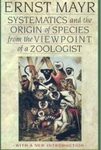![Organizational Ecology Organizational Ecology]()
Click to have a closer look
About this book
Contents
Customer reviews
Biography
Related titles
About this book
Hannan and Freeman examine the ecology of organizations by exploring the competition for resources and by trying to account for rates of entry and exit and for the diversity of organizational forms. They show that the destinies of organizations are determined more by impersonal forces than by the intervention of individuals.
Contents
Preface PART 1 :Theory 1.Organizations and Social Structure Organizational Diversity Perspectives on Organizational Change The Demography and Ecology of Organizations Population Thinking Evolution of Organizational Forms Dynamic and Comparative Analysis 2. Theoretical Background Organization Theory and Sociology: Missing Connections Comparison of Contemporary Approaches Controversies and Misunderstandings Managerial Implications and Applications 3. Boundaries of Forms and Populations Approaches to Defining Forms A Focus on Boundaries Boundary Dynamics and Diversity Implications for Research 4. Structural Inertia and Organizational Change Structural Inertia A Hierarchy of Inertial Forces Variations in Strength of Inertia 5. Competition and the Niche The Principle of Isomorphism The Niche Classical Competition Theory Niche Overlap and Competition 6. Modeling the Dynamics of Organizational Populations Variations in Intrinsic Founding Rates Effects of Environments on Carrying Capacities Conceptualizing the Size of Populations Carrying Capacities and Density Dependence Rate Dependence and Diversity Dependence Dynamics of Selection PART 2: Methods 7. Designs of Empirical Studies Defining Events National Labor Unions Semiconductor Merchant Producers Newspaper Publishers in San Francisco Comparison of Data Sets 8. Models and Methods of Analysis Describing Organizational Histories Models for Transition Rates Counting Process Models Estimation and Testing PART 3: Empirical Finding 9. The Population Ecology of Founding and Entry Core Questions Founding Rates of Labor Unions Entry Rates of Semiconductor Manufacturing Firms Founding Rates of Newspaper Firms Comparisons and Contrasts 10. Age Dependence in Failure Rates The Liability of Newness National Labor Unions Exits of Semiconductor Manufacturing Firms 11. The Population Ecology of Organizational Mortality Disbanding Rates of Labor Unions Exit Rates of Semiconductor Firms Failure Rates of Newspaper Firms Comparisons and Contrasts 12. Dynamics of Niche Width and Mortality Niche Width and Mortality of Restaurants Niche Width and Exit Rates of Semiconductor Firms Comparisons and Contrasts 13. Conclusions Implications of the Research Problems for Analysis References Name Index Subject Index
Customer Reviews
Biography
Michael T. Hannan is Professor of Sociology, Stanford University. John Freeman is Professor, Graduate School of Management, Cornell University.
By: Michael T Hannan and John Freeman
384 pages
Organizational Ecology is an exceptional book. It is at several points all exemplar of integrating formal theory with sophisticated empirical research... The future will look back to...the period when theory emerged to formalize the temporal component in the relationship between competition and formal organization. The key book in that long look will be Hannan and Freeman's Organizational Ecology. This is a book in which we can all take pride as sociologists. -- Ronald S. Burt American Journal of Sociology Michael Hannan and John Freeman began one of organization theory's more acrimonious debates. Borrowing heavily from the biological literature on population ecology, Harman and Freeman argue that macrosocial processes play a major role in determining organizational success or failure, more so than managerial action... If you are interested in the debate, and you wish to be able to argue intelligently about the underlying issues, this is a good book to read. -- Raymond F. Zammuto Journal of Management In the business of academic research, one often hears exhortations for the value of programmatic, long-term, longitudinal research, yet such instantiations are rare. Hannan and Freeman's volume stands as one of these uncommon examples...For any serious scholar of organizations and strategy it would make sense to study this book. -- Jitendra V. Singh Administrative Science Quarterly



































